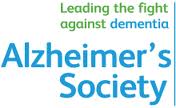Latest News from Everycare
Women with high physical fitness at middle age were nearly 90 percent less likely to develop dementia decades later, compared to women who were moderately fit, according to a study published the March 14, 2018, online issue of Neurology®, the medical journal of the American Academy of Neurology. The study measured the women’s cardiovascular fitness based  on an exercise test.
on an exercise test.
When the highly fit women did develop dementia, they developed the disease an average of 11 years later than women who were moderately fit, or at age 90 instead of age 79.
“These findings are exciting because it’s possible that improving people’s cardiovascular fitness in middle age could delay or even prevent them from developing dementia,” said study author Helena Hörder, PhD, of the University of Gothenburg in Gothenburg, Sweden. “However, this study does not show cause and effect between cardiovascular fitness and dementia, it only shows an association. More research is needed to see if improved fitness could have a positive effect on the risk of dementia and also to look at when during a lifetime a high fitness level is most important.”
For more information – click here
 For somebody living with dementia, language and communication can become more difficult over time.
For somebody living with dementia, language and communication can become more difficult over time.
How and when language problems develop will depend on the individual, as well as the type of dementia and the stage it is at. While the person living with the condition may have issues with recall or finding the right word, the words that other people use are important too. A poor choice of language can be both hurtful and frustrating.
Good communication can be key to helping somebody to live well with dementia. Here are a few of the words and questions to avoid in conversation.
To find out more about the 7 things not to say to somebody with dementia visit the Alzheimer’s Society website
 The National Audit of Dementia, commissioned by the Healthcare Quality Improvement Partnership (HQIP) as part of the National Clinical Audit and Patient Outcomes Programme (NCAPOP) today (Thursday 13 July 2017) found hospitals have made important changes to improve dementia care, but staff say more support is needed.
The National Audit of Dementia, commissioned by the Healthcare Quality Improvement Partnership (HQIP) as part of the National Clinical Audit and Patient Outcomes Programme (NCAPOP) today (Thursday 13 July 2017) found hospitals have made important changes to improve dementia care, but staff say more support is needed.
Hospitals in England and Wales have made many positive changes aimed at making hospitals more “dementia-friendly”, the audit shows. Overall nearly 70% of carers rated care as excellent or very good, and 75% said that the person with dementia was definitely treated with respect by staff.
Many more hospitals are providing dementia awareness training to all groups of staff, and 96% have a training framework for dementia care, up from 23% in the first round of audit in 2011. Nearly all hospitals (94%), have created dementia “champions” to lead change and support staff, following former recommendations. Staff however said they could not always access specialist support, especially out of hours.
To read more visit the Alzheimer’s Society website
 Dementia targeting in early stages
Dementia targeting in early stages
Targeting dementia in the earlier stages of the condition could be critical for the success of future therapies, say researchers from the University of Bristol, who have found that the very earliest symptoms of dementia might be due to abnormal stability in brain cell connections rather than the death of brain tissue, which comes after.
A collaborative study between researchers from Bristol’s School of Physiology, Pharmacology and Neuroscience, and the pharmaceutical company Eli Lilly and Company, studied the behaviour of synapses, connections that help transmit information between the brain’s nerve cells, in a rodent model of human frontotemporal dementia over the course of the disease progression.
Using cutting-edge microscopy techniques the team were able to image inside the brains of rodents and found that, even before the disease causes synapses and neurons start to die off, the synaptic connections already display unusual properties.
In normal brains, a small percentage of the synapses are constantly added and lost as the brain learns new skills or makes new memories. However, in brains with dementia these percentages were quite different; the team found some synapses were very unstable while others were almost frozen. This imbalance in synapse stability was linked to changes in the way neurons were activated while the brain was working.
Their findings, published in Cell Reports, reveal that, while dementia is closely linked to the death of neurons in the brain, it is the connections between these neurons and their synapses that are impaired in earlier stages of the condition. The study highlights that the very earliest symptoms of dementia might be due to this abnormal synapse stability rather than the death of brain tissue, which comes after.
Dr Mike Ashby, lead author of the study at the University of Bristol, said “The need for new treatments for dementia has never been greater, but our ability to make effective new drugs has been hampered by the fact that we don’t yet fully understand the causes of this debilitating group of diseases.
“Because neurons are so closely dependent on their synaptic partners, it is possible that the changes in synapse stability could be actually part of the reason that neurons begin to die. If this is true, then it points towards new therapeutic strategies based on treating these very early abnormalities in synaptic behaviour.”
Dr Mike O’Neill, Head of Molecular Pathology at Lilly Research Laboratories, said: “The data were one of the most comprehensive longitudinal assessments of the detailed mechanisms of synapse dysfunction in a model of tauopathy in vivo. The in vivo 2-photon technique is very powerful, but is slow and labour intensive to carry out and the collaboration with Bristol has allowed us achieve this dataset in a rapid and effective way.”
Dr Rosa Sancho, Head of Research at Alzheimer’s Research UK, said, “This new study adds weight to the growing body of evidence suggesting that synapses become disconnected before nerve cells themselves die. By using sophisticated microscopes, the Bristol team has gained valuable new insight into the stability of synapses and how this affects communication between nerve cells.
“There are 850,000 people in the UK living with dementia including over 4,600 in Bristol alone. Researchers the world over are hunting for ways to tackle the diseases that cause dementia and protect nerve cells from damaging disease processes. As well as improving our understanding of how synapses are affected in dementia, these interesting findings will help inform future research into drugs that could help keep nerve cells healthy for longer.”
 on an exercise test.
on an exercise test.

 For somebody living with dementia, language and communication can become more difficult over time.
For somebody living with dementia, language and communication can become more difficult over time.